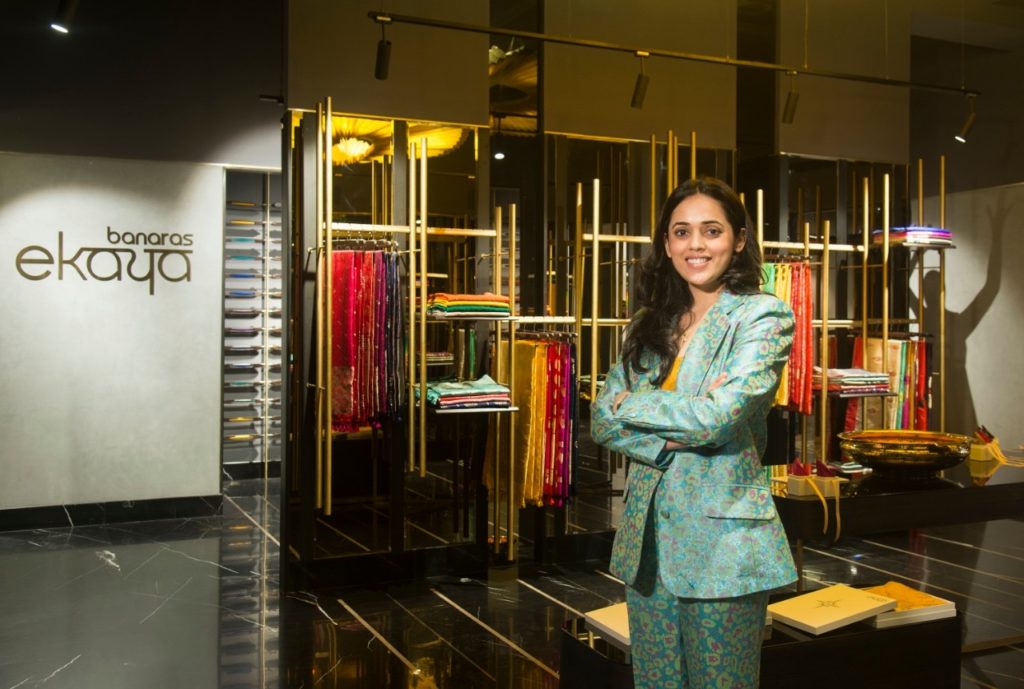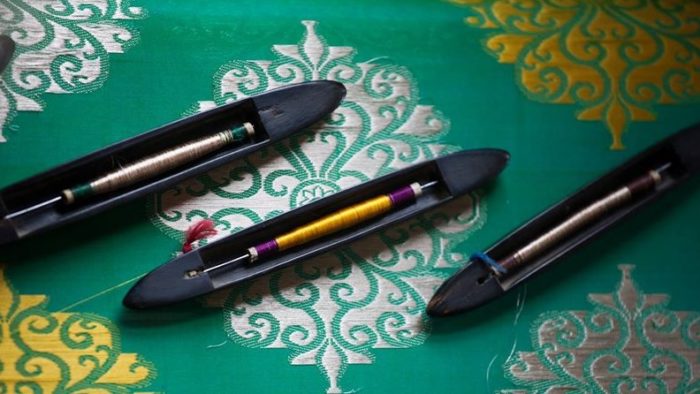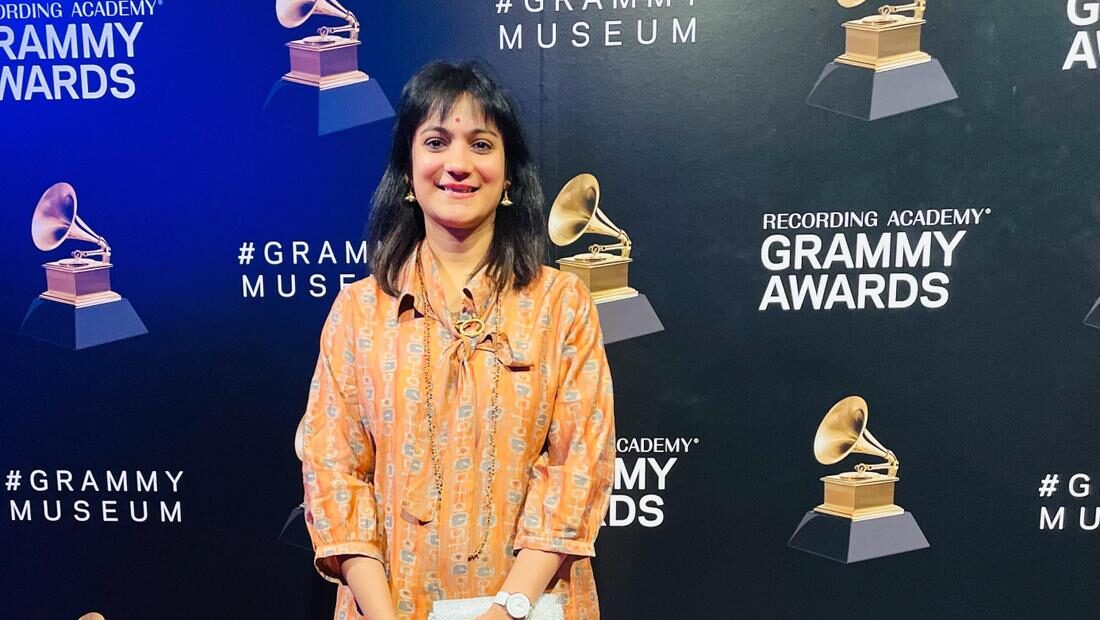Hailing from the holy city of Varanasi, Palak Shah is the third-generation entrepreneur carrying forward the 100-year-old legacy of her family business. When her grandfather first came to the city to establish his business, Varanasi was known as Banaras. Although the city has now been renamed, “Banaras” continues to be used with various cultural forms – Banaras Gharana for music, Banarsi paan and Banarsi sarees – to name a few.
Palak’s enterprise is one such initiative to keep the “Banarsi” alive in not just sarees but across the textile crafts. In this conversation with CSP, Palak shares her journey and her aspiration of making Banarsi textile crafts a global luxury product.
It all began when Palak, in her younger days, used to accompany her father to his office on a daily routine. Her father and two uncles have been involved in the wholesale and manufacturing of Banarsi textiles. Subconsciously she started learning about Banarsi textile traditions and crafts and interacted with the weaver communities.
These learnings and her branding-marketing acumen led to a new venture – Ekaya, focused on retail. For Palak, it is a new business altogether. She feels that “a retail business allows to create a market that brings together the traditional with the modern, and offers diversity as well as a new definition to Banarsi”. She is passionate to create different products, not catering to the usual market. For Palak, fashion is much more than having a sense of colour and mixing-matching. She says, “for brands and business to sustain, constant experimentation and a far-sighted understanding of fashion is a must. This can only happen when the mind is calm, filled with new ideas and when a strong marketing strategy is in place. Ekaya is a combination of great quality-controlled products and good marketing strategy of product placements.”
On being asked about the collaboration model, Palak said that the reason for Ekaya products to stand out is the equal emphasis laid on design expertise as well as textile expertise for each creation. “The collaboration model allows design expertise and new ideas to effortlessly blend with our textile expertise. Working with designers who have some textile knowledge but not proficiency enables the room for innovation to expand and out of the box thinking. This also excited the weavers create something new, something different.”
These techniques have also contributed towards preserving the authenticity of Banarsi textile traditions. “Both, reviving old designs using modern techniques and creating modern designs using old techniques are equally important. This ensures a continuous demand for Banarsi textiles which would otherwise dwindle in absence of innovation.” Elaborating further on this Palak remarked “The idea is not to stick to old designs because we want to maintain Banaras as the hub of creativity but to maintain the Banarsi technique to create new products and new designs for the new generation. In this process, we also break certain stereotypes associated with textiles and make textiles adaptable to different environments, fashion trends and consumer choices.” The Ekaya Thaan is also an initiative to introduce the textiles to the customer by weaving a narrative with each thread. It exhibits textiles, their history and craft skills as well as stories of well-known weavers.

Of fashion trends and the post-pandemic demand, Palak commented that “local production and consumption will shoot up. The demand for homemade products which can be held on for longer duration will increase. Sustainable fashion is not just about minimizing the degree of environmental harm but also to create fashion which lasts longer. Sarees are amongst the most sustainable garments. This trend will rise and fast fashion would reduce. Moreover, everyone wants to be associated with products which have a social impact story. The post-pandemic times will also witness a decline in travel and comparative loss of disposable incomes, as a consequence of which demands for niche products will go down. It is in this bracket that the Banarsi textiles fit very well. They have heritage and value, can be passed down to generations and are evergreen fashion. The fact that Banarsi can be preserved, can be worn in different ways and on different occasions, makes it even more valuable.”
On her aspirations and future of Ekaya, Palak said she wanted to take Ekaya global. Her preferred destinations would be cultural hubs where design is appreciated such as Paris or London. She feels that with eCommerce booming, a retail outlet or not, consumerism will come back and Ekaya will grow. Her idea is to “take Ekaya global making it the first luxury brand positioned with all other luxury brands. We want to make Ekaya an aspirational brand. And with this zeal, the products created are also global such as the Jacket-pants creation. Banarsi textile and crafts have to be pushed internationally, not the garment. The global appeal for the products will lead to Indian textile crafts to establish a stronghold in global markets. The idea should be to cultivate a sort of cultural attachment to the art and craft technique.”





